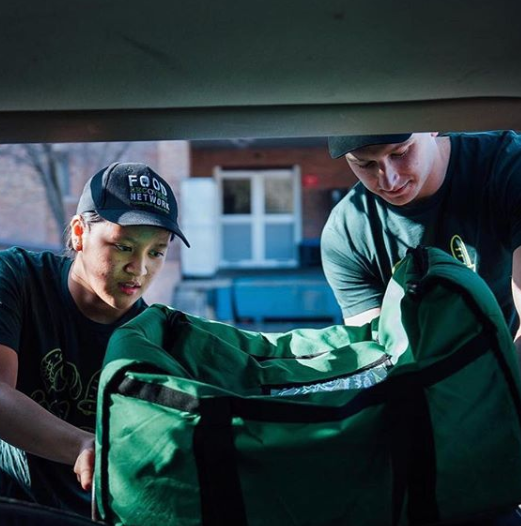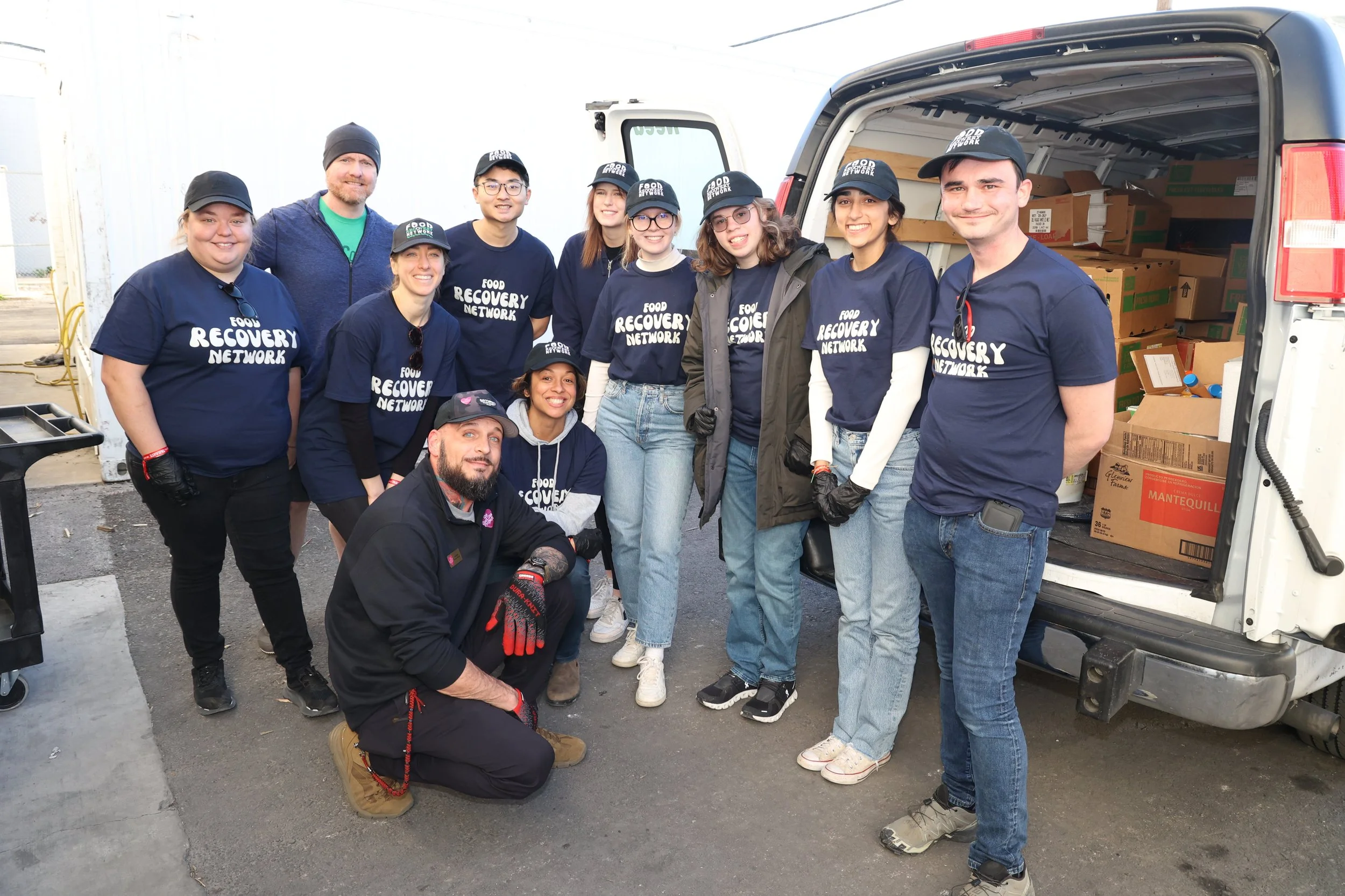OXO Announces New Nonprofit Partners As Part Of Its
Ongoing 1% for the Planet® Commitment
New York (September 21, 2021) – OXO, an award-winning consumer brand from the Housewares segment of Helen of Troy Limited (NASDAQ: HELE), today announced new nonprofit partners as part of its ongoing commitment to 1% for the Planet. 1% for the Planet is a global community of brands giving back to environmental nonprofits driving positive impact. OXO is proud to expand its nonprofit partnerships with eight new grantees, and to be recognized as the network’s leading housewares brand and the largest corporate donor of 1% for the Planet.
With its new group of nonprofit grantees, OXO will expand its reach to four international partners from France, Germany, Japan, and the UK, and four grantees in the United States. OXO’s next 1% for the Planet nonprofit partners are:
City Blossoms, based in Washington, D.C., is a nonprofit that cultivates the well-being of local communities through creative programming in kid-driven gardens. They strive to create abundant, accessible green spaces in neighborhoods where kids may not otherwise have access and where they can build lifelong connections to the natural world.
FareShare, based in London, is a network of nonprofit food redistributors, taking good quality surplus food that would otherwise go to waste and redistributing it as meals to community groups and food banks across the U.K. In the process, they divert food from landfills and prevent harmful CO2 emissions from entering earth’s atmosphere.
Food Recovery Network, based in Washington, D.C., is made up of 4,000 college students, dining providers, food suppliers, and local businesses in the fight against climate change and hunger. They recover perishable food that would otherwise go to waste and donate it to local nonprofits who feed people experiencing hunger. Their goal is to change the norm from food waste to food recovery - resulting in the recovery of surplus food to feed everyone who is hungry in the U.S., all the while reducing greenhouse gas emissions.
Harlem Grown, based in Harlem, NY, inspires youth to lead healthy and ambitious lives through mentorship and hands-on education in urban farming, sustainability and nutrition. The organization operates 12 urban agriculture facilities and provides garden-based development programs to Harlem youth with community-based partners.
Mellifera e.V., based in Rosenfeld, Germany, is committed to promoting respectful beekeeping practices and fostering the protection of bees and their habitats. They develop, test and teach new concepts and techniques in beekeeping, taking into account the needs of the bee and changing environmental conditions.
The Nature Conservation Society of Japan, based in Tokyo, Japan, is dedicated to the conservation of ecosystems and biological diversity in Japan. One of the largest conservation nonprofits in Japan, they focus on protecting threatened species and ecosystems, research, and conservation education and engagement, including beach clean ups.
Urban Sprouts, based in San Francisco, California, plants the seeds of social equity to build healthy and thriving neighborhoods in San Francisco. The organization operates five community gardens and provides education programs in gardening, cooking and nutrition, in addition to job readiness programs, providing young people who face barriers to entering the workforce with practical tools and work experience.
Veni Verdi, based in Paris, France, creates school vegetable gardens in urban areas with the aim of raising awareness among the next generation of growers. Their gardens not only provide educational and vocational opportunities for children and adults, but also contribute to a more resilient city and the development of a local circular economy.
“Our new 1% for the Planet partners are a powerhouse group of nonprofits tackling big environmental concerns day in and day out,” said Indigo Teiwes, Director of Corporate Responsibility at Helen of Troy. “OXO’s commitment to 1% for the Planet helps ensure the impact of the grantees’ work will be felt for years to come. And because OXO commits 1% of sales to our nonprofit partners, it means consumers’ purchases contribute to the bottom-line impact we can make within our focused giving areas of Sustainable Food Systems, Cleaner Air, Land & Water, and Environmental Education.”
Since joining 1% for the Planet in March 2020, OXO has provided millions of dollars of funds and resources to organizations addressing some of the most pressing environmental issues of the day. In its first year, OXO partnered with five nonprofit partners, selected for their vision for a better future for the planet and the urgent issues they work to address. Within the brand’s focused giving areas, year one results with the first five nonprofit partners included:
Sustainable Food Systems:
13,955 servings of produce distributed from school giving gardens
1,047 farmers/land stakeholders engaged
70 farms transitioning to organic – approximately 41,835 acres, or the equivalent of 31,700 football fields or 50 Central Parks
Cleaner Air, Land and Water
414,008 meals provided for people in need
5,000,000 gallons of water saved
621,524 lbs greenhouse gasses prevented – the equivalent of 708,517 miles driven by an average passenger vehicle or 34.3 million smartphones charged
Environmental Education
40,491 students and over 9,000 teachers engaged in environmental curriculum
228 hours of school-based staff training provided
24 educational activities created
“Since OXO made its commitment to 1% for the Planet in 2020, we have seen incredible results from our nonprofit partners – results that are driving real change,” said Larry Witt, President of the Helen of Troy Housewares Division. “We are infinitely impressed with their tenacity and resilience, and their work has inspired our team to continue to strive for better in all facets of our business. We recognize that we have a long journey forward in our environmental and corporate responsibility work, but are exhilarated by the road ahead. And it is of course through customer purchase that our giving is even possible, so to OXO consumers everywhere, thank you for being a force for good for the home we all share – planet earth.”
OXO’s partnership with 1% for the Planet has been a vital step in a long-term commitment to becoming better environmental stewards — making ongoing commitments to give back and making changes toward lightening the brand’s impact on the planet.
"Our team has worked closely with OXO on their giving strategy, and we couldn't be more impressed with the integrity and thoughtfulness of their approach,” said Kate Williams, CEO of 1% for the Planet. “We are thrilled about the partnerships they are developing with an incredible set of nonprofits in our network, which showcase OXO's role as a model for how companies of all sizes can integrate giving into their business and sustainability plan in highly effective, impactful ways.”
For more information on OXO’s 1% for the Planet work and its nonprofit partners, please visit www.oxo.com/1-percent.
About OXO
For over 30 years, OXO has been globally recognized for its groundbreaking, award-winning universal product design. Starting with the iconic OXO Good Grips Swivel Peeler in 1990, OXO has paired innovation and purpose to create tools and gadgets that make everyday living better, every day. Today, OXO makes products that span several home categories: cooking, baking, cleaning, storage and organization, coffee, baby. The brand has won over 100 design awards worldwide; its products reside in the collection of the Museum of Modern Art and the Smithsonian Cooper Hewitt National Design Museum. OXO consistently challenges convention, solving problems and anticipating needs with thoughtful, modern design solutions. OXO is a proud member of 1% for the Planet, committing 1% of annual sales to support environmental nonprofits. Learn more about how OXO is making the everyday better at www.oxo.com.
About Helen of Troy Limited
Helen of Troy Limited (Nasdaq: HELE) is a leading global consumer products company offering creative solutions for its customers through a diversified portfolio of well-recognized and widely-trusted brands, including OXO, Hydro Flask, Vicks, Braun, Honeywell, PUR, Hot Tools and Drybar. We sometimes refer to these brands as our Leadership Brands. All trademarks herein belong to Helen of Troy Limited (or its subsidiaries) and/or are used under license from their respective licensors. For more information about Helen of Troy, please visit www.helenoftroy.com.
About 1% for the Planet
1% for the Planet is a global organization that exists to ensure our planet and future generations thrive. We inspire businesses and individuals to support environmental nonprofits through membership and everyday actions. We make environmental giving easy and effective through partnership advising, impact storytelling and third-party certification.
Started in 2002 by Yvon Chouinard, founder of Patagonia, and Craig Mathews, founder of Blue Ribbon Flies, our business members and individual members have given hundreds of millions of dollars to our approved nonprofit partners to date. Today, 1% for the Planet’s global network consists of thousands of businesses, individuals and environmental nonprofits working toward a better future for all.
Look for our logo to purchase for the planet, learn more and join at onepercentfortheplanet.org.
###
Media Contacts:
For OXO
Mary Ogushwitz
PR Director, Helen of Troy, Housewares
mogushwitz@helenoftroy.com
For 1% for the Planet
Allyson Bartlett
Director of Brand & Marketing
allyson@onepercentfortheplanet.org










